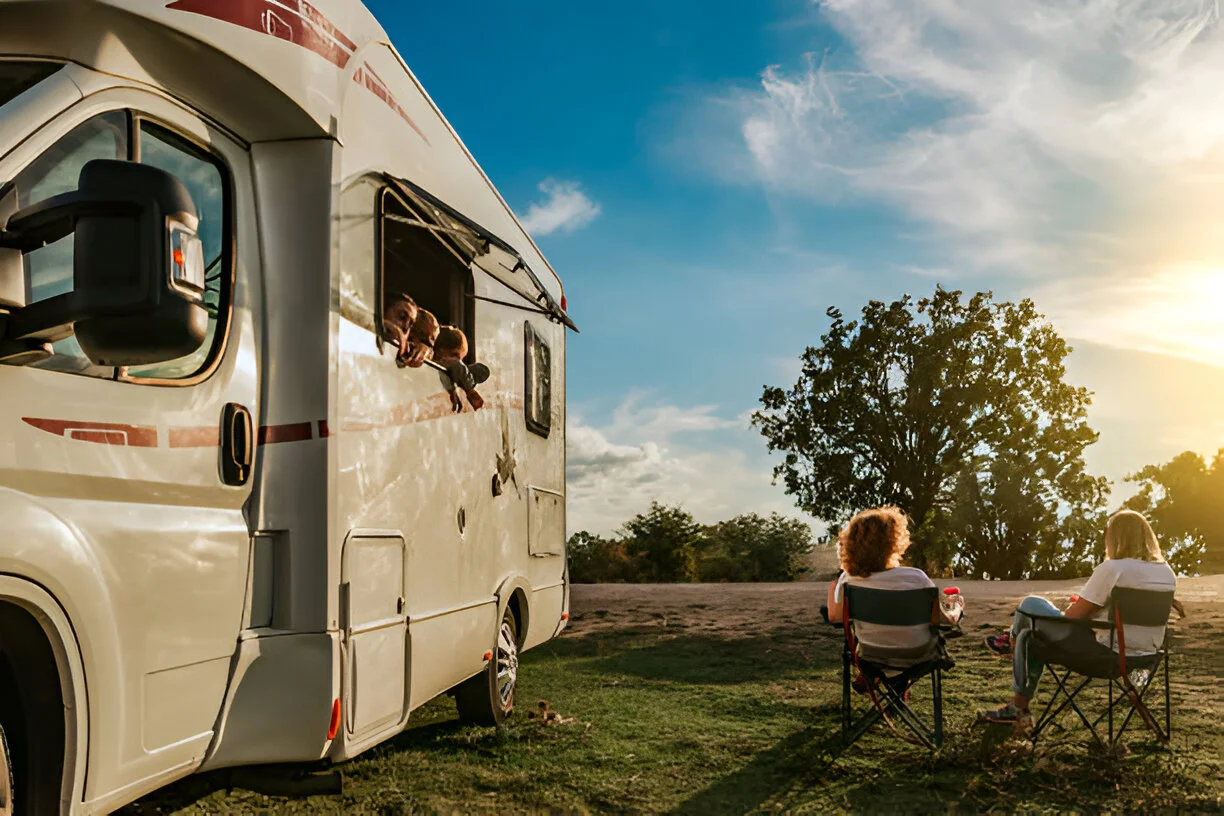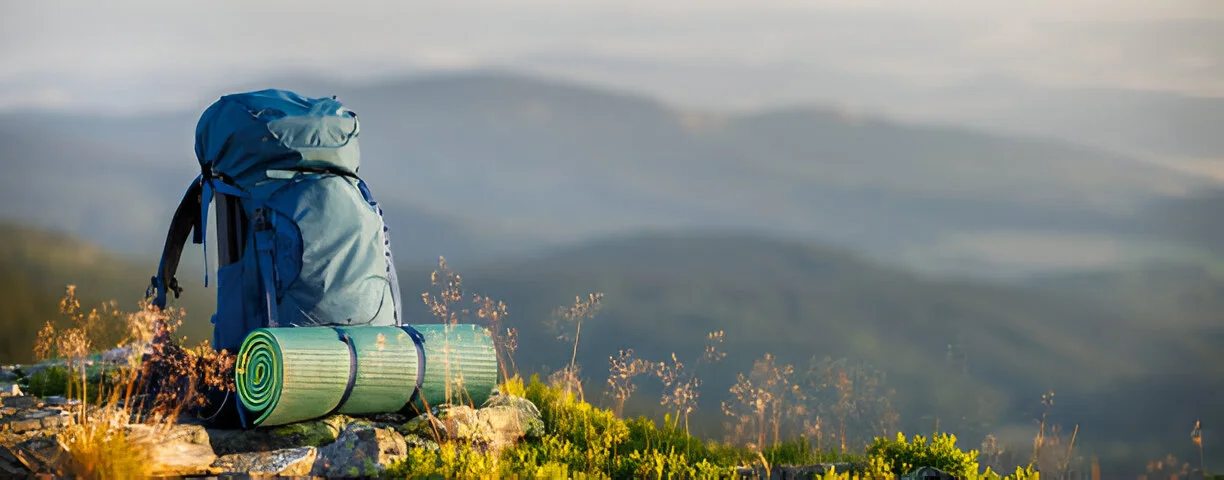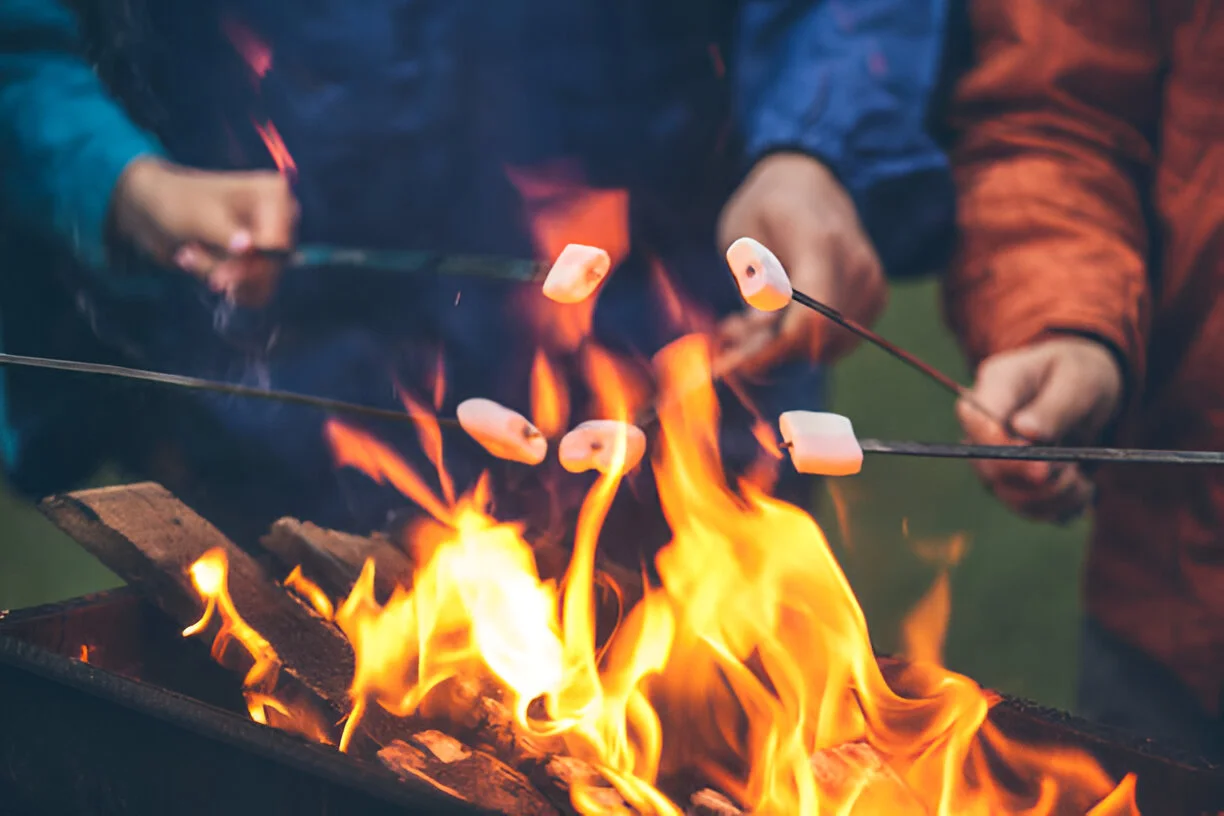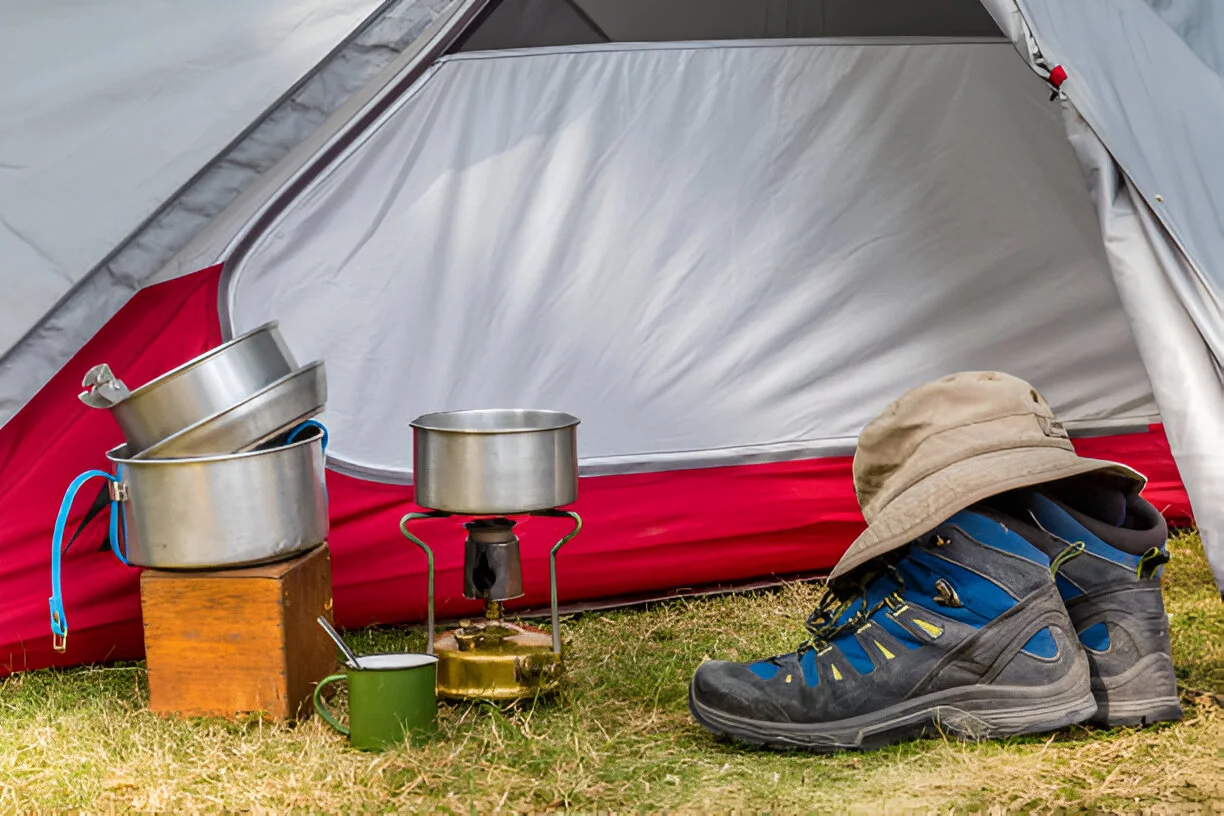Family camping trips are the stuff of great memories. Just imagine the stars, the s’mores, and those crackling campfire moments. But let’s be real—keeping everything fun and safe takes a little preparation. With these practical tips, you’ll be ready for a smooth family camping adventure that’s loaded with good times and peace of mind.
Planning Your Trip
Choosing the Right Campsite
Not all campsites are created equal. Some offer a “home away from home” vibe with clean restrooms, potable water, and even playgrounds for kids. Others are more rugged, which can be fun but may require a little more prep. Look for a family-friendly campground with amenities that meet your needs and are suitable for the ages and abilities of everyone in the family.
Researching the Area
Spend a bit of time learning about the local wildlife, weather patterns, and terrain. This info will help you pack the right gear and give you a heads-up on any local hazards, like poison ivy or roaming wildlife. Plus, it gives you a chance to prepare some “fun facts” about the area to share with the family!
Involving the Family in Planning
Engage everyone in the planning process. Let the kids help choose the campsite or activities. Ask them what they’d like to eat or if they have any games they’d like to bring. This not only builds excitement but also encourages responsibility—they’ll be way more invested in the trip!
Packing Essentials
Shelter and Sleeping Gear
Your tent is the family’s base camp. Choose a tent that’s large enough to fit everyone comfortably, with a little room for gear. Don’t forget sleeping bags rated for the expected temperatures, sleeping pads or air mattresses, and pillows. A tarp or tent footprint can add extra protection against moisture from the ground.
Clothing
Pack layers to handle the ever-shifting weather. Include rain gear, hats, and sturdy shoes. Toss in a couple of extra socks and underwear for everyone. It’s amazing how quickly clothes can get wet or dirty at camp.
Cooking Supplies
Whether you’re grilling or using a portable stove, make sure you’ve got everything you need for cooking. Bring cookware, plates, cutlery, and dish soap for cleanup. Don’t forget little things like a can opener, spatula, or pot holders.
Food and Water
Planning meals ahead can simplify everything. Pack some non-perishables, but bring a cooler for items like milk or cheese. Drinking water is essential; if you’re camping where water isn’t available, bring your own or a filtration system.
First Aid Kit
A well-equipped first aid kit is vital. Include essentials like bandages, antiseptics, pain relievers, and insect repellent. Add any personal medications needed by family members.
Navigation Tools
Even if you’re staying close to marked paths, a map, compass, or GPS can come in handy. It’s easy to get turned around on unfamiliar trails, especially with eager little explorers leading the way.
Entertainment and Activities
A few simple extras can make downtime fun. Bring games, books, binoculars for birdwatching, or sports equipment. Even a deck of cards can be a lifesaver when everyone’s looking for something to do around camp.
Setting Up Camp
Arriving Early
Arriving with plenty of daylight left lets you set up without any added pressure. It’s a lot easier to pitch a tent and arrange camp when you’re not racing the sunset.
Choosing a Safe Spot
Look for a flat, slightly elevated area that’s free of debris and hazards like ant hills or hanging branches. Avoid spots too close to water, as they can flood unexpectedly and are often where bugs gather.
Organizing the Campsite
A well-organized campsite can make a big difference. Designate spaces for cooking, sleeping, and recreation. Keep food and cooking gear in one area and downwind from your tent to avoid inviting animals in for a midnight snack.
Campfire Safety
Following Regulations
Many campgrounds have fire rules, so check the regulations before building one. Fire restrictions are often based on weather, and some areas might be fire-free zones to prevent wildfires.
Building a Safe Fire
Use established fire rings or pits whenever possible. Gather wood and start with smaller pieces to get the fire going. Keep a bucket of water and a shovel nearby. And remember, safety first—never leave the fire unattended, not even for a quick minute.
Extinguishing the Fire
When it’s time to douse the fire, pour water over it, stir the ashes, and repeat until everything is cool to the touch. This ensures there’s no chance of sparks rekindling.
Wildlife Awareness
Storing Food Properly
Food storage is a big deal. Use bear-proof containers or hang food in a bear bag suspended between two trees. Keeping food away from your sleeping area reduces the likelihood of attracting curious critters.
Maintaining a Clean Campsite
A clean campsite is a safe campsite. Dispose of trash promptly and keep food scraps well-contained. Leftovers can quickly attract animals, so pack out all trash or dispose of it in designated containers.
Educating the Family
Take a few minutes to teach kids about local wildlife. Let them know to admire animals from a distance and not to approach. This keeps both the animals and your family safe.
Hygiene and Sanitation
Using Restroom Facilities
If the campground has restrooms, use them as much as possible. For those off-the-grid trips, follow Leave No Trace principles: dig a small hole 6-8 inches deep and cover it up thoroughly when done.
Hand Hygiene
Camping or not, clean hands are crucial. Bring hand sanitizer and encourage everyone to wash their hands regularly, especially before eating.
Dishwashing
Use biodegradable soap and wash dishes away from any water sources. This keeps the environment clean and prevents contamination of streams or lakes.
Safety Precautions
Weather Preparedness
Always check the forecast before you go and keep an eye on any weather changes. Be prepared for surprises with rain gear, extra blankets, and layers.
Emergency Plan
Have a game plan in case of emergencies. Make sure everyone knows the closest hospital location, emergency contact numbers, and basic first aid.
Supervision
Keep an eye on kids, particularly near water or when they’re off exploring. Set boundaries for how far they can roam and emphasize the buddy system for added safety.
Activities and Entertainment
Nature Exploration
Encourage kids to engage with nature. Bring a nature guidebook or app and go on a plant or bird identification adventure. A scavenger hunt with items like “find a pinecone” or “spot a blue flower” can make the hike even more fun.
Campfire Stories and Songs
Nothing says camping like storytelling by the fire. Share fun stories, sing songs, or even let each family member make up their own spooky tale.
Games
Simple games like frisbee, soccer, or even a deck of cards can keep everyone entertained. Games are perfect for bonding and can add a little extra fun to the trip.
Teaching Leave No Trace Principles
Respecting Nature
Instill a sense of responsibility by teaching kids about Leave No Trace. This means sticking to trails, respecting plants, and not disturbing wildlife.
Cleaning Up
Make it a family goal to leave the campsite cleaner than you found it. Packing up all trash and belongings helps preserve nature for the next campers.
Post-Trip Reflection
Sharing Experiences
Once home, take a few minutes to chat about the trip. Ask everyone what they enjoyed most and if there’s anything they’d like to change for next time.
Maintaining Gear
Cleaning and storing camping gear properly will keep it in top shape for future trips. Get everyone involved with a “gear-check” to make sure everything’s ready for the next adventure.
Planning the Next Adventure
Now that you’re seasoned campers, start thinking about where to go next! Each trip teaches you something new, so keep building on what you’ve learned for an even better experience next time.
Conclusion
Camping as a family is an incredible way to bond, learn, and make lasting memories. With a little planning and the right precautions, you can create a fun, safe, and enriching outdoor experience for everyone. From picking the perfect campsite to sharing stories around the campfire, each part of the journey becomes a treasured part of the adventure. So pack up, embrace the outdoors, and enjoy every moment — nature’s wonders await!
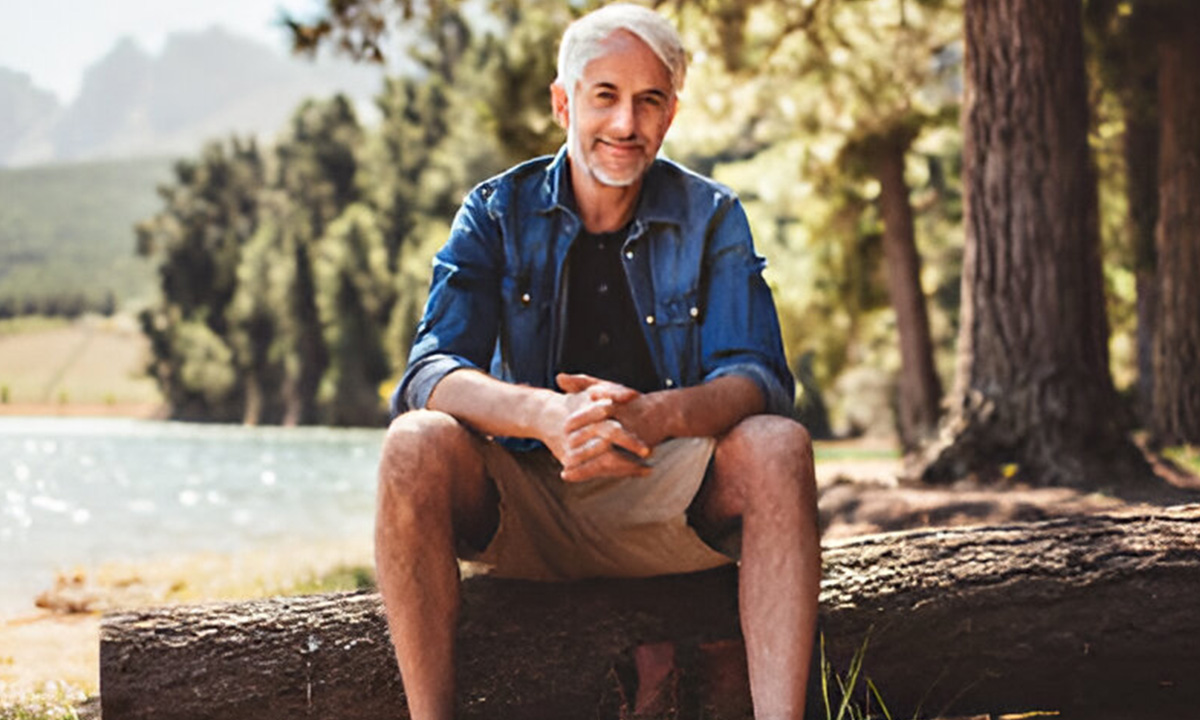
Stanley Morgan is an avid camper and outdoor enthusiast dedicated to making camping accessible and fun for all. With years of experience exploring nature, they share tips, gear advice, and inspiration to help others enjoy unforgettable outdoor adventures.

